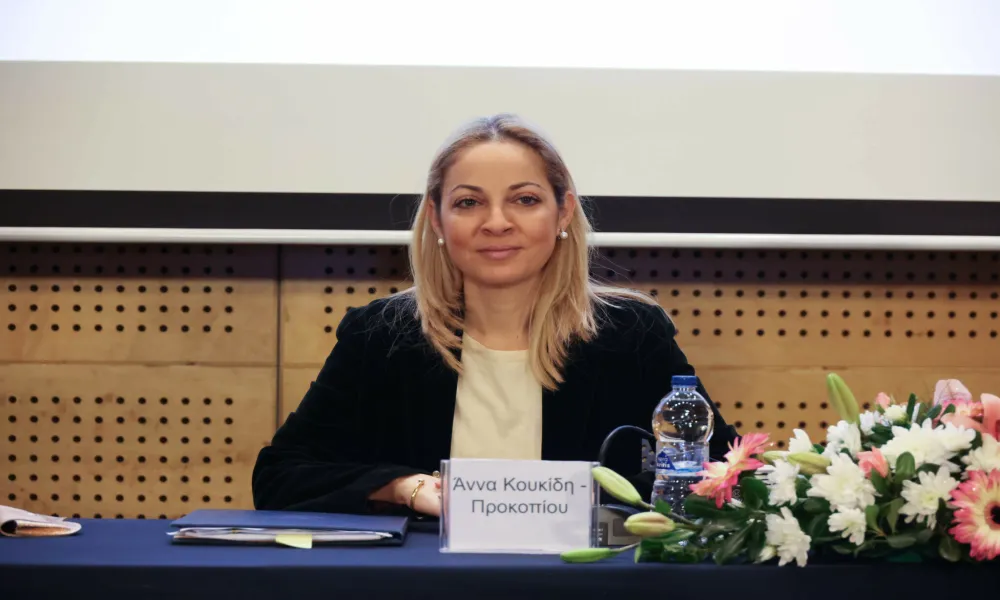Anna Koukkides-Procopiou, historian, international relations expert and president of the think tank Politeia, warned that the Cyprus problem is entering a more difficult trajectory due to the warming of US–Turkey relations and Ankara’s hardened line on a “two-state” solution. Noting noted that the international environment is marked by ambiguity, escalating challenges and uncertainty, she said that these trends also spill over into Greek–Turkish relations.
According to the analyst, the prospect of substantive progress on Cyprus remains low, resembling a state of “restless calm,” with no visible change of course. Expectations raised by recent international contacts have largely been disappointed or voided of meaningful content.
Ankara, she explained, is clearly reasserting its objective of a “two-state” settlement and is urging international actors to recognize the occupied areas, while promoting the argument that no major project in the Eastern Mediterranean can move forward without Turkey’s involvement. This, she stressed, should not be dismissed as mere rhetoric.
The renewed warmth in Washington–Ankara relations, despite congressional objections over arms deals, has strengthened President Erdoğan’s confidence. Evidence of this advantage could be seen in swift moves on aircraft orders and in raising sensitive issues such as the Halkbank case at the highest levels of dialogue.
Greek–Turkish relations and interconnection
Regarding Greek–Turkish ties, Koukkidi-Prokopiou noted that the atmosphere has worsened compared with the previous period of “euphoria.” The cancellation of the planned Erdoğan–Mitsotakis meeting reflected a decline in mutual trust — a development that also weighs negatively on the Cyprus problem.
On the question of the electricity interconnector and possible operational moves (e.g. NAVTEX announcements, seabed exploration support), she stressed that deterrence requires both credible intent and the capacity to enforce it. She left open the question of whether, in the current climate, there exists sufficient political and social backing for escalation.
In her analysis, Turkey generally acts on its declared intentions. Greece, she argued, must carefully balance its diplomatic language, military preparedness and international legitimacy, while avoiding actions that cannot be sustained in terms of deterrent credibility.
The international environment
Koukkides-Procopiou described today’s international environment as one of “ambiguity,” in which US positions project mixed signals on key issues. Navigating this reality, she concluded, requires policies that “fit” within the wider fluid environment, grounded in deterrence, institutional legitimacy and multi-level partnerships.
